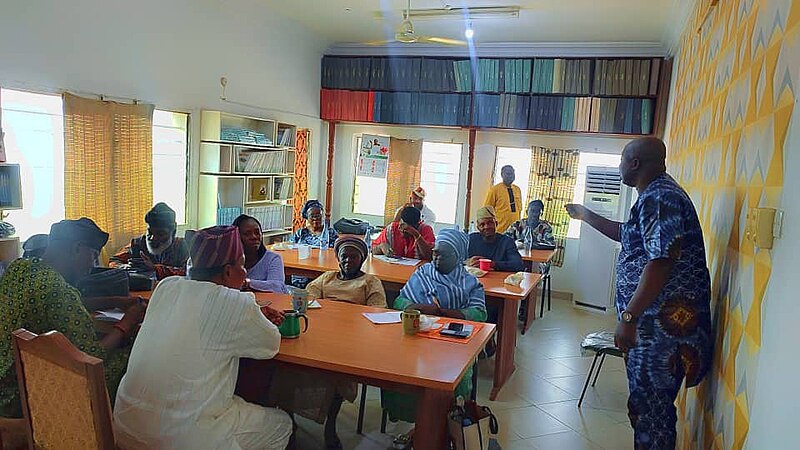The collaboration between Yoruba Wikimedians UG and the International Centre for Yoruba Arts and Culture has taken strides towards standardizing Yoruba language orthography.
In an exciting development, the Yoruba Wikimedians User Group, in collaboration with the International Centre for Yoruba Arts and Culture, has taken significant steps to address a pressing issue: the lack of standardization in Yoruba Orthography. The initiative aims to overcome challenges such as inconsistent content, potential quality issues, and accessibility problems on Wikimedia projects.
A pivotal inaugural meeting, held at the University of Ibadan on January 12, 2024, saw the participation of distinguished representatives from notable Yoruba language-focused organizations including the National President of Yoruba Studies of Nigeria, National President of Yoruba Language Teachers Association, National President of Yoruba Lecturers of College of Education, President of the Nigerians Publishers Association of Nigeria, DAWN Commission, National President of the Theatre Arts and Motion Picture Association of Nigeria, President of the International Centre for Yoruba Arts and Culture, and President of the Yoruba Wikimedians User Group.

The historical background of Yoruba writing system standardization, beginning in 1875 with subsequent refinements and orthographies, sets the stage for the current efforts. Despite established standards in 1974, ongoing contention over writing conventions, spelling, grammar, and tone marks necessitates a comprehensive review.
Scheduled for January 21, 2024, the official launch of the Yoruba Orthography Review Committee is set to be inaugurated. The committee’s inauguration coincides with celebrating International Mother Language Day, promising a convergence of cultural performances and essay writing competitions involving students from universities, colleges, and secondary schools.
The initiatives emphasize a dedication to preserving and improving the representation of the Yoruba language on Wikimedia platforms, contributing to a more inclusive and standardized digital space.

Can you help us translate this article?
In order for this article to reach as many people as possible we would like your help. Can you translate this article to get the message out?
Start translation